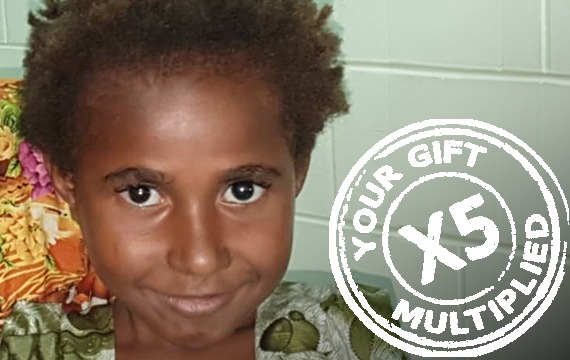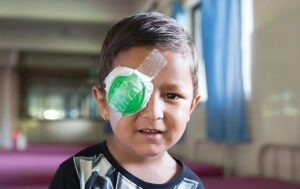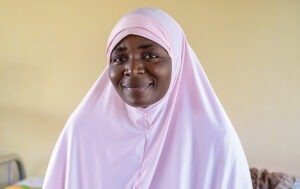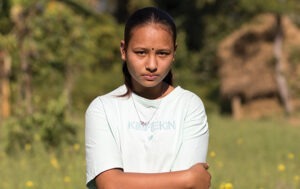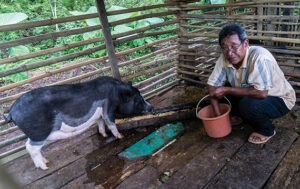Monica
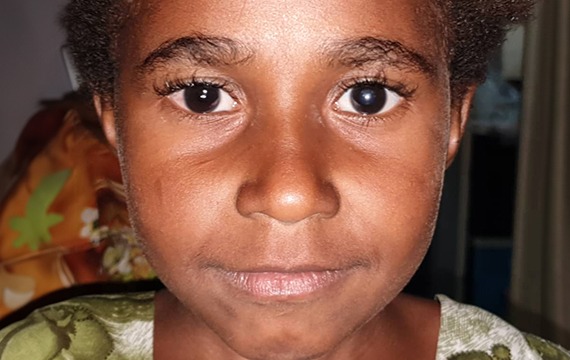
Please help transform the lives of adults and children with disabilities, like 6-year-old Monica, living in remote communities in Papua New Guinea!
Your gift will be multiplied x5 by our Government’s Aotearoa New Zealand International Development Cooperation Programme!
“Enlarge the place of your tent, stretch your tent curtains wide, do not hold back; lengthen your cords, strengthen your stakes.” – Isaiah 54:2
With support from generous people like you, amazing progress has been made by cbm over the last 40 years to help people with disabilities living in remote communities in Papua New Guinea (PNG).
But, the need is great, and in places of great need, we believe that together we can respond to the call, as in Isaiah 54:2:
To ‘enlarge the place of our tent’ - widening our hearts,
To ‘stretch our tent curtains wide’ - to see and grow God’s vision of hope for a brighter future,
And to ‘lengthen our cords, and strengthen our stakes’ - to grow as we believe in, and act on, the promises of God.
With continued support from generous people like you, cbm has an opportunity to expand its ministry into even more remote parts of PNG.
A new partnership, with a local and well-established Christian health provider, will increase access to eye health services (including cataract surgeries), and to hearing and other specialist health services in remote areas to further prevent avoidable long-term disability.

Your generosity can help treat conditions like eye and ear infections, congenital and age-related cataract surgeries, and neglected clubfoot. Without treatment, these conditions trap people in the cycle of poverty and disability.
Please will you prayerfully consider sending your generous gift, which will be multiplied x5 by our Government’s Aotearoa New Zealand International Development Cooperation Programme, to help transform the lives of even more adults and children with disabilities living in remote communities in PNG.
Thanks to knowledge learnt from past analysis and research, cbm’s new partnership will have a particular focus on reaching women and girls, like Monica, who are less able to access much needed disability specific services.
Monica was born with congenital bilateral cataracts. Like many children with disabilities in the world’s poorest places, Monica’s family could never afford the sight-saving cataract surgery she urgently needed.
Without surgery, Monica would struggle to read her books or the chalkboard at school.
Without extra support, she would miss out on vital education and be denied the opportunity to build a better future for herself.
Your gift today will help transform the lives of children like her.
Together, we can help ensure adults and children with disabilities are not left behind.
When children, like Monica, start to attend school their difficulty seeing isn’t usually recognised or understood. Instead, they are often left at the back of the classroom, unable to see, and keep up with, what is going on.
For many children who aren’t given access to basic eye-healthcare, due to a lack of specialist support or training for teachers, their difficulty seeing is often mistaken for a lack of focus in learning.
No matter how much children with disabilities want to learn – no matter how hard they try – they are being left behind.
And, missing out on school can have a devastating and lasting impact on their entire future.
We know that receiving an education is vital. And giving children in remote communities that opportunity, helps break the cycle of poverty.
But many children living in poverty with disabilities are being denied the opportunity to go to school, and the chance to build better lives.
Moreover, girls with disabilities can often be vulnerable to abuse. Therefore, it is crucial that girls are able to attend safe and inclusive schools, where they can be educated, empowered, and included.
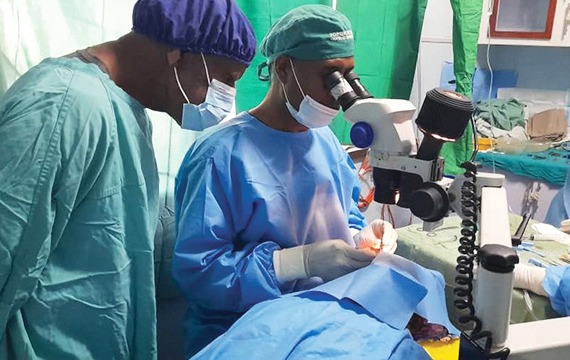
Thanks to caring people like you, Monica was able to have her blinding cataracts removed at a cbm-funded Eye Clinic and continues to have her vision regularly monitored. Her mother Joan is so happy and grateful that her daughter no longer has to live with avoidable blindness.
Because of kind-hearted people like you, children like Monica will have brighter futures and the opportunity to attend disability-inclusive schools where teachers are taught to understand how difficulty seeing affects education.
Your gift will lead to enormous change to lives like Monica’s.
Right now, in low income countries like PNG, many children with disabilities are missing out on attending school, and most of them are girls.
In fact, girls with disabilities face twice the barriers of other children. They are not given the same opportunities to enrol in school as boys, or as girls without disabilities.
The barriers can be physical – classrooms without a ramp for wheelchair access, or toilets without handrails. Many schools in PNG don’t have support in place, like training for teachers, or sign language translation for students who are deaf.
But girls with disabilities have as much right as any other children to be inside the classroom, learning, making friends and building a future.
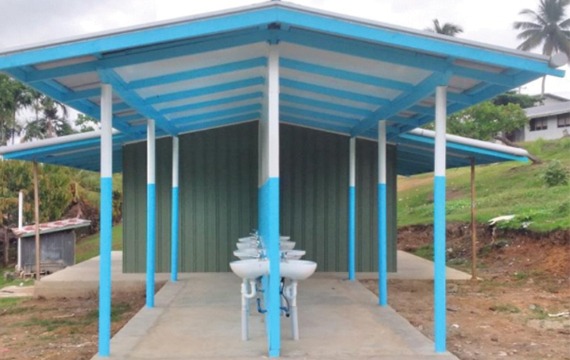
Not every solution is simple or straightforward – but many of them are. Although children like Monica have the opportunity to receive eye surgery and are able to attend disability-inclusive schools, without glasses they still struggle more than they need to.
Together we can help our near neighbours in PNG, where children with disabilities can be educated, empowered, and included.
Please will you prayerfully consider sending your gift, which will be multiplied x5 by our Government’s Aotearoa New Zealand International Development Cooperation Programme, to help transform the lives of adults and children with disabilities living in remote communities in PNG. It will have an enormous impact, giving adults and children independence, freedom from abuse, and a chance to shape their own future.
Your gift will help buy glasses for adults and children who have difficulty seeing, enabling children to obtain an education to help break the cycle of poverty and disability.
It will help provide sight-saving cataract surgeries, enabling children and adults with avoidable blindness to see!
And it will help support cbm-funded outreach clinics in remote areas find adults and children with disabilities, and refer them for specialist help.
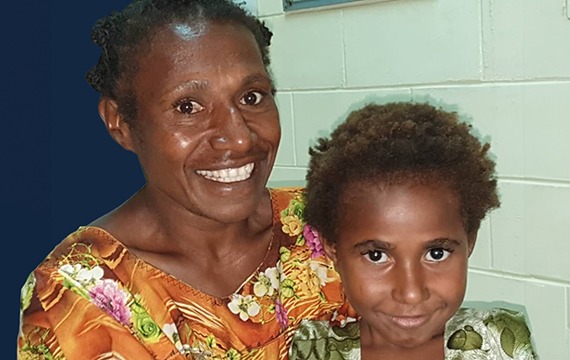
It will also be directed to help cbm’s new partner to improve its local health facilities, such as hospitals and clinics that do not have essential infrastructure, equipment and staff trained in specific skilled disability prevention services. Due to limited funding and qualified staffing, many of these local health facilities do not currently have sufficient specialised equipment for screening and assessment of disability services.
There is a great need to provide more eye screening equipment, glasses and primary eye care training for health personnel, to serve in remote locations. Please can you help?
Thank you for being willing to send a life-changing gift to help transform the lives of adults and children in remote areas of PNG.
Together we can help break the cycle of poverty and disability.
As cbm is called to ‘enlarge its tent pegs’ and enter into a new partnership with a local well-established Christian health provider, please will you prayerfully consider sending a gift today, to help transform the lives of adults and children with disabilities living in remote communities in PNG. It will have an enormous impact, giving adults and children independence, freedom from abuse, and a chance to shape their own future.
Thank you for your kind and caring heart.
